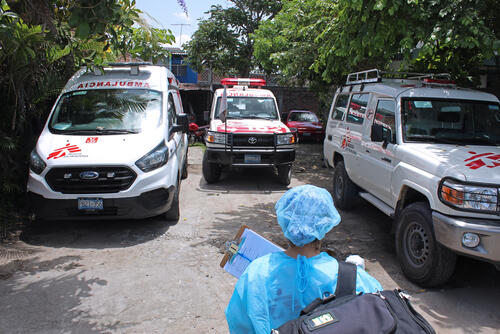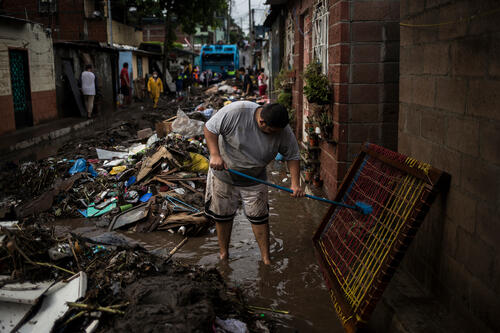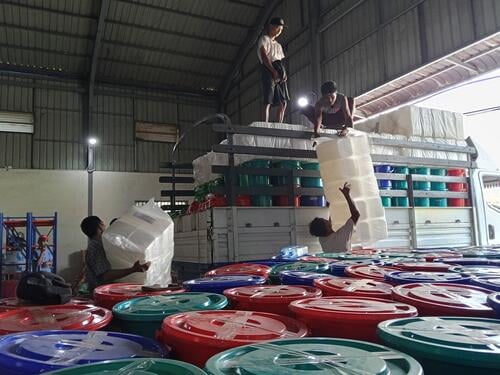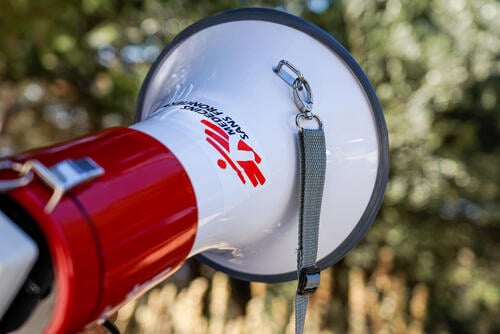Médecins Sans Frontières (MSF) has warned of an increase in people dying of COVID-19 in the metropolitan area of San Salvador, the capital of El Salvador. MSF runs an ambulance service in the capital and in neighbouring Soyapango.
“Worryingly, community leaders are reporting deaths in their communities, some of them related to the suspension of primary healthcare,” said Luis Romero Pineda, MSF’s project coordinator in El Salvador. “Admitting patients to hospitals has become more difficult.”
We have continued to run healthcare activities in San Salvador and Soyapango during the coronavirus pandemic, even though the Salvadoran Health Ministry suspended most primary healthcare services in March. These cities are the most populated in the country and have become the epicentre of the pandemic.
In many instances the patient had already died when we arrived at their house.Angel Sermeño, MSF medical activity manager
Our teams have witnessed rapidly worsening conditions related to the effects of COVID-19 on people’s health, and the health system is close to collapsing.
MSF ambulance teams in the eastern metropolitan area in San Salvador are recording an increase in patients dying at home before the ambulance arrives.
“In many instances the patient had already died when we arrived at their house,” said Angel Sermeño, MSF’s medical activity manager in El Salvador. “In 2019, this occurred 11 times between January and June. In the same period this year, 37 people have died before we arrived; 18 people have died in June alone.”
“The main causes of death are related to metabolic disorders and respiratory and heart problems, which have increased fourfold compared to the first half of last year,” said Sermeño. “In addition, there are four cases of respiratory complications that could be related to atypical pneumonias or COVID-19.”
It is vital to improve coordination, increase the number of available beds and ensure protective measures in hospitals to guarantee the safety of staff and patients... guarantee access to basic healthcare.Luis Romero Pineda, MSF project coordinator in El Salvador
Stigma and fear of contagion are delaying people from seeking medical assistance, sometimes with fatal consequences. Many people are afraid to leave their homes for fear of being judged for carrying the disease or being taken away from family members if they are hospitalised. Some people cannot even afford a mask, and others seek help but are not attended to due to the suspension of consultations and infection controls in hospitals and health units.
Community leaders in the five communities where MSF provides primary healthcare in Soyapango and San Salvador report that since the emergency was declared, more than 50 people have died after showing symptoms compatible with COVID-19 or from a lack of treatment for chronic diseases.
The increase in household mortality reflects the enormous burden of COVID-19 on the health system. Based on the analysis of data from our ambulance system, there are three factors that explain the increase in mortality in recent months:
- The lack of access to primary healthcare services, which has contributed to the deterioration of the health of patients with chronic diseases.
- The ambulance system and hospitals are operating at full capacity.
- The mechanisms for detecting cases of COVID-19 in some communities are not systematically transferred to the national territory, which prevents the timely detection and hospitalisation of people with complications.
“Some patients die while waiting to go to hospital because we have to wait for authorisation from the public health system to be able to move patients to a care centre,” says Wendy, a doctor working in MSF's ambulance service. “We cannot transfer the patient from his or her home without prior coordination and authorisation from the public health system.”
“It is vital to improve coordination, increase the number of available beds and ensure protective measures in hospitals to guarantee the safety of staff and patients, as well as increase the response capacity of the emergency transfer services in critical cases,” says Romero Pineda. “It is also essential to guarantee access to basic healthcare, and improve case detection and follow-up to prevent cases from becoming serious, whether they are COVID-19 or not.”
During the COVID-19 pandemic in El Salvador, MSF teams have continued to provide primary healthcare and mental health services in communities, as well as psychosocial assistance in detention centres for deported people, and expanded ambulance response capacity in support of the SEM.






